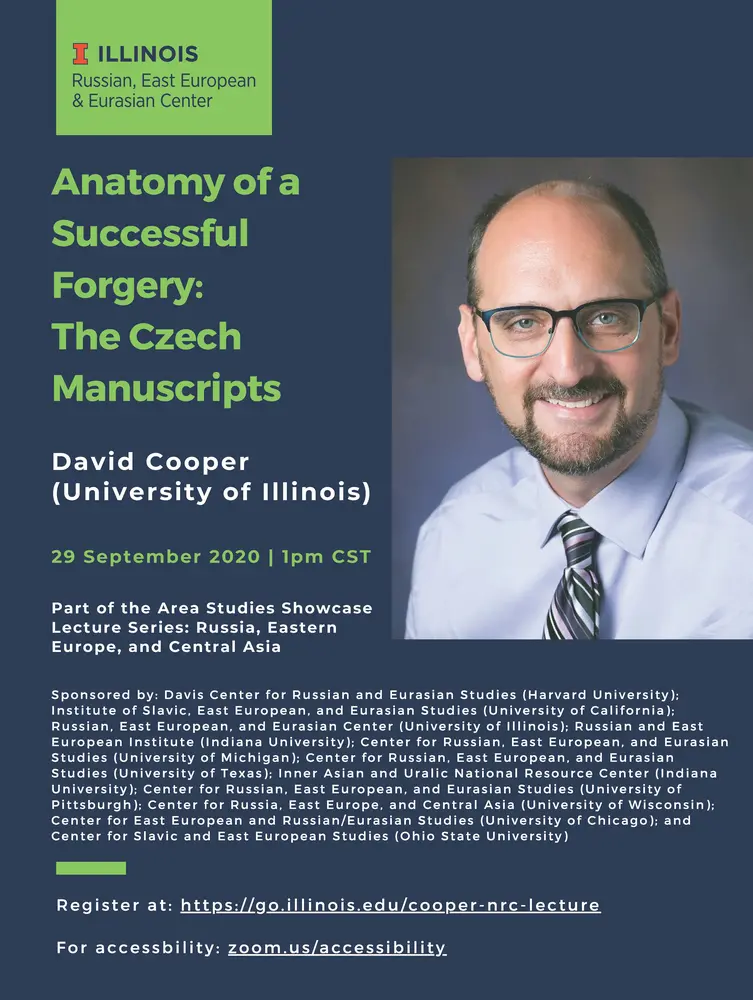
By Quinn O'Dowd (PhD Student, Sociology)
On Tuesday, September 29th, Professor David Cooper (Associate Professor of Slavic Languages and Literatures, University of Illinois) gave a lecture entitled “Anatomy of a Successful Forgery: The Czech Manuscripts” as part of the Area Studies Showcase Lecture Series: Russia, East Europe, and Central Asia. This virtual lecture series was a collaborative effort to showcase an area studies specialist from each center focusing on the Russian, East European, and Central Asian world region.
In the lecture, Professor Cooper described the discovery of the Queen’s Court and Green Mountain Manuscripts in 1817 and 1818. The manuscripts contained poetry written in old Czech and were thought to have been from the medieval period. The finding of these epic poems supported claims that there was, in fact, a longstanding Czech literary tradition. This then legitimatized the Czech nationalist movement, which used this connection to the past to strengthen their case for sovereignty. Outside of the Czech lands, the manuscripts provided evidence that Czechs belonged among European nations, as romantic poets across Europe were finding older works and ascribing them with national significance. Furthermore, the manuscripts’ perceived age ensured that they would not be seen as overtly political by authorities in Vienna. These manuscripts, however, were merely clever forgeries.
Unlike literary forgeries which appeared at a similar period across Europe that were quickly revealed to be false, the Queen’s Court and Green Mountain Manuscripts were believed to be legitimate for at least 50 years. On the one hand, the falsity of these documents could be seen to undermine the Czech nationalist movement, as having a longstanding linguistic and artistic tradition legitimized claims to self-governance. However, Professor Cooper concluded his lecture by arguing that Czech culture is no more false than any other national culture of the period. Understanding the European nationalist movements of the 19th century as imagined communities gives supports Professor Cooper’s claim, demonstrating how national cultures are the result of purposeful projects, rather than natural happenstance.
Quinn O'Dowd is a PhD Student in Sociology at the University of Illinois at Urbana-Champaign.